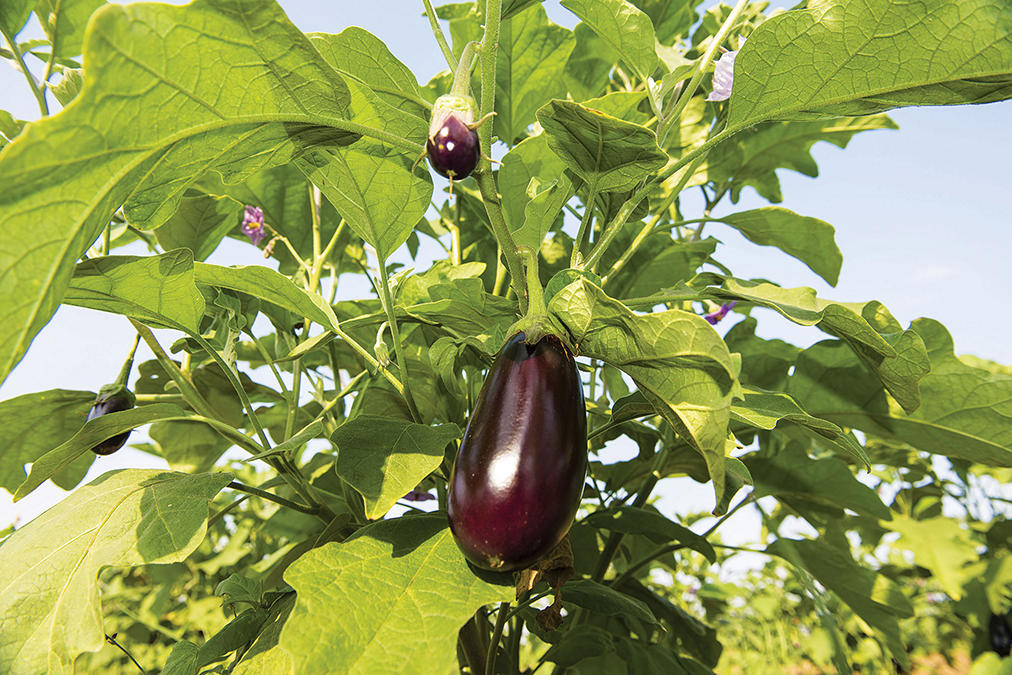
Busting Brinjal Diseases with Botanical Bravery!
Share
Introduction
Ah, the humble brinjal (eggplant)! A versatile veggie gracing our curries and gracing our gardens. But even these robust plants face a silent foe – disease! Don't let brinjal blues dampen your harvest dreams. This blog equips you with the knowledge to become a brinjal disease-fighting botanist extraordinaire!

Common Brinjal Diseases
Damping-off: This fungal disease strikes seedlings, causing them to rot and die shortly after germination.

Fungal Wilt: Various fungal wilts like Verticillium wilt and Fusarium wilt cause wilting, yellowing, and stunting of plants.

Bacterial Wilt: This bacterial disease causes wilting, yellowing, and a slimy stem rot, leading to plant death.

Fruit Rot: Fungal pathogens cause sunken spots, discoloration, and rotting of developing brinjal fruits, rendering them inedible.

Natural Disease Management Strategies
Seed Treatment: Treat your seeds with neem oil or a copper fungicide before planting to deter fungal pathogens.
Crop Rotation: Don't plant brinjal in the same spot year after year. Rotate your crops to disrupt disease cycles.
Spacing Savvy: Provide adequate spacing between brinjal plants to ensure good air circulation, which discourages fungal diseases.
Watering Warriors: Water deeply and less frequently, avoiding wetting the foliage. This helps prevent fungal spores from spreading.
Mulch Magic: Apply a layer of organic mulch around your brinjal plants to suppress weeds, retain moisture, and regulate soil temperature.

Botanical Bodyguards: Consider planting companion crops like marigolds or basil near your brinjal to deter pests and potentially suppress certain diseases.
The Scouting Spree: Early Detection is Key
Give those eggplant babies a thorough check-up for any sneaky diseases! Catching them early can be a game-changer in keeping your plant party disease-free. Keep an eye out for droopy leaves, yellowing, mysterious spots, or any stems that seem a bit too soggy.
Organic Options
For specific diseases, organic options like neem oil sprays or copper fungicides might be effective. However, always prioritize preventative measures and consult a gardening expert for recommendations
Chemical Control
If all else fails, consider using a fungicide or bactericide specifically labeled for brinjal diseases. Remember, prevention is key, and using harsh chemicals should be a last resort.

Conclusion
Busting brinjal diseases with botanical bravery is not only a sustainable and eco-friendly approach but also an effective one. By integrating botanical solutions into your pest management strategy, you can protect your brinjal crops from harmful diseases while promoting a healthier ecosystem. Khethari Agri Tech Private Limited is committed to providing innovative agricultural solutions that harness the power of nature, ensuring your brinjal plants thrive. Embrace the botanical bravery and safeguard your crops for a bountiful harvest!
